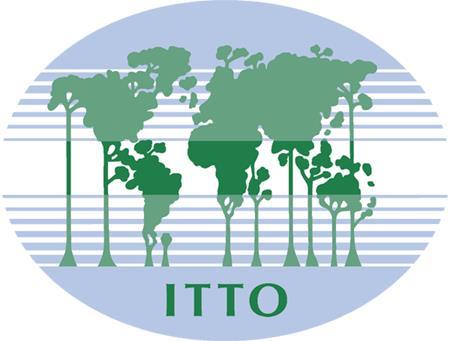International Tropical Timber Organization (ITTO)
Contents
International Tropical Timber Organization (ITTO):
About ITTO
The International Tropical Timber Organization is an intergovernmental organization established in 1986 under the International Tropical Timber Agreement (ITTA), 1983, which was negotiated under the auspices of the United Nations Conference on Trade and Development (UNCTAD). ITTO is the sole international governmental organization focused entirely on tropical forest resources and represents the world’s primary forum for consultation and cooperation on tropical timber trade and sustainable forest management. The organization operates as an action-oriented body that bridges the interests of tropical forest producing and consuming nations.

Membership
ITTO currently has 76 members representing approximately 80% of the world’s tropical forests and over 90% of global tropical timber trade. Membership is divided into two caucuses:
Producer Caucus: 37 countries, including India (a founding member), Indonesia, Malaysia, Brazil, Peru, and Cameroon among others
Consumer Caucus: 38 countries plus the European Union (EU), including Japan, Switzerland, United States, Norway, and the Netherlands
Within the Council structure, voting power is equally distributed between producer and consumer countries, with individual votes assigned based on market share.
Headquarters
ITTO is headquartered in Yokohama, Japan, where its secretariat operates with a small staff of approximately 40 professionals.
Objectives and Functions
ITTO’s core mandate involves three interconnected objectives:
The organization promotes conservation and sustainable management of tropical forests including reforestation of degraded areas. Second, it encourages sustainable forest industries and increased processing of timber in producer countries to maximize value-added exports and economic benefits. Third, ITTO ensures transparency in tropical timber trade through data collection and dissemination.
Main Functions include:
Developing internationally agreed policy guidelines and norms to encourage sustainable forest management and sustainable tropical timber industries
Assisting tropical member countries to adapt guidelines to local circumstances through field implementation projects
Collecting, analyzing and disseminating data on tropical timber production and trade
Promoting sustainable tropical timber supply chains
Developing capacity in tropical forestry and forest management
Additionally, ITTO serves as a consultative forum for promoting non-discriminatory timber trade practices and contributes to sustainable development processes.
Major Programmes and Initiatives
ITTO operates through several thematic and operational programmes:
- Forest Landscape Restoration (FLR): ITTO collaborates with partners to help member countries restore degraded and deforested landscapes while enhancing human wellbeing. The organization published comprehensive guidelines in 2002 (revised in 2020) on forest landscape restoration, which emphasize ecological functionality, stakeholder participation, and adaptive management. FLR represents a landscape-level approach that balances environmental, social and economic benefits.
- Legal and Sustainable Supply Chains (LSSC): This programme enhances tropical timber supply chains from forests to markets to achieve legality and sustainability. Initial activities include promoting green-growth value chain investments, establishing a global LSSC platform, studying blockchain-based timber tracking systems, and developing training curricula for central African countries.
- Forest Law Enforcement, Governance and Trade (FLEGT): Addressing illegal logging and improving forest governance in tropical member countries.
- Community Forest Management and Enterprises: Supporting local communities in managing forests sustainably and developing forest-based enterprises.
- Trade and Market Transparency: Improving market intelligence through data collection and dissemination to ensure transparent and fair pricing of tropical timber.
- Conservation of Biodiversity and Ecosystem Services: Through the Joint ITTO-CBD Initiative for Tropical Forest Biodiversity, the organization supports biodiversity conservation in production forests and protected area management.
- Industry Development and Efficiency: Promoting wood-use efficiency and competitiveness of wood products from sustainable sources.
- Reducing Deforestation and Forest Degradation (REDD+): Supporting climate change mitigation and adaptation through forest protection.
Project Portfolio and Track Record
Since becoming operational in 1987, ITTO has funded and assisted in implementing over 1,200 projects and activities, valued at more than $400 million. These projects address diverse aspects of sustainable forest management including forest restoration, wood-use efficiency, biodiversity conservation, climate change mitigation, non-timber forest products, environmental services, and community livelihoods. The major donors to ITTO projects are Japan, Switzerland, United States, Norway, and the Netherlands.
Criteria and Indicators
ITTO pioneered the development of Criteria and Indicators (C&I) for sustainable tropical forest management in the early 1990s, enabling countries to assess forest conditions and management systems. The revised edition includes seven criteria and 58 indicators addressing forest ecosystem health, biodiversity, production, soil and water protection, and socioeconomic aspects.
Governance
ITTO is governed by the International Tropical Timber Council (ITTC), which meets at least once a year to discuss a wide-ranging agenda promoting sustainable tropical forest management and sustainable timber trade. The ITTC-60 session held in December 2024 approved a budget of USD 7.1 million for 2024-25 and endorsed the Biennial Work Programme emphasizing collaboration with partner organizations.
ITTO’s dual approach of balancing conservation with sustainable utilization of tropical forests through international cooperation makes it a unique organization in global forest governance and a vital partner in achieving sustainable development goals related to forests and climate action.
Check : ENVIRONMENT NOTES
Discover more from Simplified UPSC
Subscribe to get the latest posts sent to your email.




